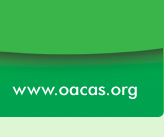Going the Distance: An On-line Experience
By Lorraine Campbell
A life-long learner eager to return to school, I knew that acquiring my Master of Social Work degree would pose a number of challenges. As a single parent with three children, a full-time career in child protection, as well as a second part-time job in the field, I was hard-pressed to eke out another free minute in my day. My tenacity and curiosity trumped these momentary complexities as I began to research various graduate social work programs. Finding the time not to mention the mighty tuition fee would somehow come I reasoned, once I found the program.
I began my research with the familiar York University where I had acquired two undergraduate degrees some years earlier. Part-time graduate studies were available, but the notion of a long and dreary commute following a full day’s work while pre-fixing dinner for the kids before heading out exhausted me. Then a colleague recalled that some Canadian universities offered undergraduate social work programs on-line, and that perhaps there might be a graduate program available.
Now this was more like it: with no travel time, and working from the comfort of my home at my own pace and in the wee hours of the night, I would sail through the program! Moreover, with no overhead to pay, no student to house, utility expenses or lecture halls to build, surely the tuition fees would be lower and thus more affordable. I was beginning to take a real shine to on-line learning and began my search for a graduate program with zeal.
As I researched on-line learning, I discovered that Dalhousie University had been offering an On-Line Distance Graduate Degree Program in social work for a couple of years. Moreover, they had a stream of study that focused on the field of child welfare, my career interest. I began the rather onerous application process that clearly stipulated that no advanced standing would be granted for any work or earlier academic experience. Moreover, there was a prescribed order in which courses were to be taken, and at least one course had to be taken at another university. A practicum entailing 650 hours in the field was mandatory, and had to be arranged by the student and required preapproval by the university. Tuition fees for each class also had an additional technology fee attached, which placed the cost of the program higher than an in-class program. Of course, a computer also needed to be purchased.
The subsequent three years of study were the most rewarding in my academic career. I had the privileged of being taught on-line by some of the most cutting edge professors in Canada. Not only were students located across the country, professors were also recruited nationally. My surprise at finding my professors working at a local children's mental health agency was only surpassed by learning her colleague - and my Agency's partner in providing services to our adolescents - also taught "at" Dalhousie.
With an emphasis on anti-oppressive practice and postmodernism, each class challenged us to reflect upon our assumptions and to deconstruct our own mainstream view of social work. Moreover, my fellow classmates were for the most part seasoned practitioners, who shared their lived experiences; we cross-country students were made richer by sharing our experiences working in rural, urban and remote northern communities. The diversity of the student body was such that without visual knowledge of each other, we didn't necessarily know the ethnicity, physical ability, (or even gender at times) of our classmates. For three years I thought Jamie was a guy, until she talked about her impending maternity leave. Nonetheless, common themes of lack of resources, difficult working conditions, oppressed and racialized communities surfaced in each course, in each corner of Canada. Course work involved numerous papers, discussions, tests and group PowerPoint presentations. A rich field placement experience helped me fuse theory to practice. Elective courses were rich and varied: I took a course in international development that inspired me to eventually volunteer in Lima, Peru. While in Lima, I was able to participate in my Elective course discussion group by way of a local internet café connection.
The program exceeded my expectations in ways I would never have anticipated. Course work was far more demanding than I had expected. The time I saved in travel was otherwise spent obsessing over on-line discussions that were occurring 24 hours a day, from various time zones. I needed little computer experience, but was grateful for being a visual learner, and for a fast typing speed. This October, I graduated from Dalhousie University. I have never been to Halifax, but Dalhousie's Distance learning took me on an adventure that will be treasured.
About the Author:
Lorraine Campbell is a supervisor at the Catholic Children’s Aid Society of Toronto (CCAST) where she currently supervises a team working with adolescents. She is also the emergency after-hours supervisor. In 2010, she will celebrate her 20th year with CCAST.
Previous article: Advertorial: Our Teaching Approach: Transforming knowledge into Knowledge
Next article: Submit an Article |


